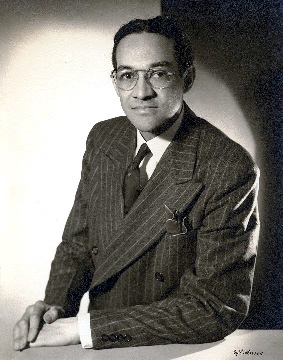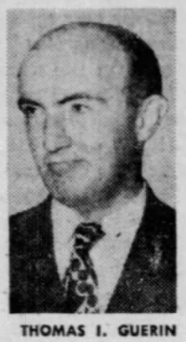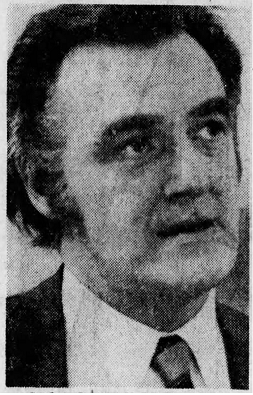
Raymond Pace Alexander was an American civil rights leader, lawyer, politician, and the first African American judge appointed to the Pennsylvania Court of Common Pleas. Born and raised in Philadelphia, he became the first black graduate of the Wharton School of Business in 1920. After graduation from Harvard Law School in 1923, Alexander became one of the leading civil rights attorneys in Philadelphia. He gained prominence as a black lawyer willing to fight for equal rights in the Berwyn desegregation case and represented black defendants in other high-profile cases, including the Trenton Six, a group of black men arrested for murder in Trenton, New Jersey.

Constance Hopkins Snow Dallas was an American politician. A member of the Democratic Party, she served on the Philadelphia City Council as a representative of the city's 8th district. Born in New York and educated in Europe, Dallas came to Philadelphia as a teenager. After marriage and raising children, she entered local politics as a reform-minded Democrat. Following an unsuccessful run for City Council in 1947, she was elected in 1951, the first woman to serve in that legislative body.

Harry Norwitch was an organized labor leader and Democratic politician from Philadelphia.

The 1951 Philadelphia municipal election, held on Tuesday, November 6, was the first election under the city's new charter, which had been approved by the voters in April, and the first Democratic victory in the city in more than a half-century. The positions contested were those of mayor and district attorney, and all seventeen city council seats. There was also a referendum on whether to consolidate the city and county governments. Citywide, the Democrats took majorities of over 100,000 votes, breaking a 67-year Republican hold on city government. Joseph S. Clark Jr. and Richardson Dilworth, two of the main movers for the charter reform, were elected mayor and district attorney, respectively. Led by local party chairman James A. Finnegan, the Democrats also took fourteen of seventeen city council seats, and all of the citywide offices on the ballot. A referendum on city-county consolidation passed by a wide margin. The election marked the beginning of Democratic dominance of Philadelphia city politics, which continues today.

Thomas Ignatius Guerin was a Democratic lawyer and politician from Philadelphia.

William Milton Phillips was a Republican businessman and politician from Philadelphia.

Samuel Rose was a Democratic lawyer and politician from Philadelphia.

Michael John Towey was an organized labor leader and Democratic politician from Philadelphia.

Philadelphia's municipal election of November 3, 1953, was the second held under the city charter of 1951 and represented the first test of the Democratic city government of Mayor Joseph S. Clark Jr. In the 1951 election, the voters had elected a Democratic mayor for the first time in 67 years, breaking the Republican hold on political power in the city. They had also elected a majority-Democratic City Council along with Democrats for district attorney and other citywide offices. In 1953, the voters had the chance to continue the Democratic trend or to block it in the election for City Controller, Register of Wills, and various judges and magistrates. On election day, the Republican organization recovered from their 1951 losses, electing all their candidates citywide. Republicans celebrated the victory, but subsequent Democratic triumphs in the 1955 and 1959 elections made the 1953 result more of an aberration than a true comeback for the once-powerful Philadelphia Republican machine.

Emanuel Weinberg was a Democratic politician from Philadelphia who served two-and-a-half terms on Philadelphia City Council.

The 1957 Philadelphia municipal election, held on November 5, involved the election of the district attorney, city controller, and the remainder of a term for one city council seat, as well as several row offices and judgeships. Democrats were successful citywide, continuing a run of victories racked up after the passage of a new city charter in 1951 despite growing divisions between factions of the party. Victor H. Blanc, the incumbent district attorney, led the Democratic ticket to victory. They held the city council seat and took two citywide offices that Republicans had won in 1953. In the judges' elections, most were endorsed by both parties but in the one race that pitted a Democratic candidate against a Republican, the Democrats were successful in seating their candidate, former Congressman Earl Chudoff.

Louis Schwartz was a Republican politician from Philadelphia who served in the Pennsylvania state legislature and the Philadelphia City Council.

Paul D'Ortona was a Democratic politician from Philadelphia who served as President of Philadelphia's City Council.

1959 Philadelphia's municipal election, held on November 3, involved contests for mayor, all seventeen city council seats, and several other executive and judicial offices. Citywide, the Democrats took majorities of over 200,000 votes, continuing their success from the elections four years earlier. Richardson Dilworth, who had been elected mayor in 1955, was re-elected over Republican nominee Harold Stassen. The Democrats also took fifteen of seventeen city council seats, the most seats allowed to any one party under the 1951 city charter. They further kept control of the other citywide offices. The election represented a continued consolidation of control by the Democrats after their citywide victories of the previous eight years.

Philadelphia's municipal election of November 7, 1961, involved the election of the district attorney, city controller, and several judgeships. Democrats swept all of the city races but saw their vote totals much reduced from those of four years earlier, owing to a growing graft scandal in city government. District Attorney James C. Crumlish, Jr. and City Controller Alexander Hemphill, both incumbents, were returned to office. Several ballot questions were also approved, including one permitting limited sales of alcohol on Sundays.

Philadelphia's City Council special election of 1962 was held to fill three vacant city council seats. The first was in the 8th district, when Democrat Alfred Leopold Luongo was appointed to the federal bench in September 1961. A second vacancy that same year occurred in the 10th district when Democrat John M. McDevitt resigned in June 1962 to become a Catholic priest. An at-large seat also became vacant when Victor E. Moore resigned in September 1962 to become the head of the Philadelphia Gas Works. Special elections were scheduled for November 6, 1962, to be held at the same time as the federal and gubernatorial elections that year. Democrats held two of the seats but lost the 8th district to a Republican.

The 1963 Philadelphia's municipal election, held on November 5, involved contests for mayor, all seventeen city council seats, and several other executive and judicial offices. The Democrats lost vote share citywide and the Republicans gained one seat in City Council, but the Democratic acting mayor, James Tate, was elected to a full term and his party maintained their hold on the city government. The election was the first decline in the Democrats' share of the vote since they took control of the city government in the 1951 elections, and showed the growing tension between the reformers and ward bosses within their party.

Austin Andrew Meehan, Sr., was a Republican politician in Philadelphia who served as county sheriff. Before entering politics, Meehan ran his family's paving business and was known as a local basketball star. Beginning as an insurgent within the city's Republican Party, he soon won the favor of party bosses and climbed the ranks of Philadelphia's Republican organization. Meehan served two terms as county sheriff from 1944 to 1952 and was recognized as the unofficial head of the Republican Party in Philadelphia in the 1950s. He remained an influential party member until his death in 1961. He was the father of Billy Meehan.
Clarence Kennedy Crossan was a Philadelphia Republican politician who served for 28 years on the Philadelphia City Council.

James T. McDermott was a Pennsylvania judge and politician who served on the state's Supreme Court from 1981 until his death in 1992. Before joining the court, he was active in Philadelphia politics as a Republican candidate for Congress in 1958, city council in 1962, and mayor in 1963. He was a trial court judge on the Court of Common Pleas from 1965 to 1981.














